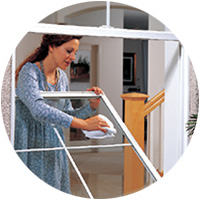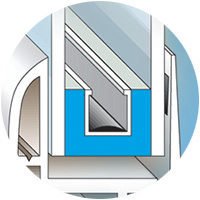Frequently Asked Questions
Answers to frequently asked questions regarding vinyl windows, performance, energy efficiency and more.
Answers to frequently asked questions regarding vinyl windows, performance, energy efficiency and more.

Lansing windows and doors are designed for easy care and maintenance. Click the button below to download Lansing’s window and door care and maintenance guide.

Condensation is a direct result of interior humidity and the difference between indoor and outdoor air temperature. Click the button below to download our Understanding Condensation guide for windows and doors.

With multiple glass options to increase energy efficiency, there is a glass package to fit any climate need and budget. Visit the Glass section of our site to learn more about available options and energy efficiency.